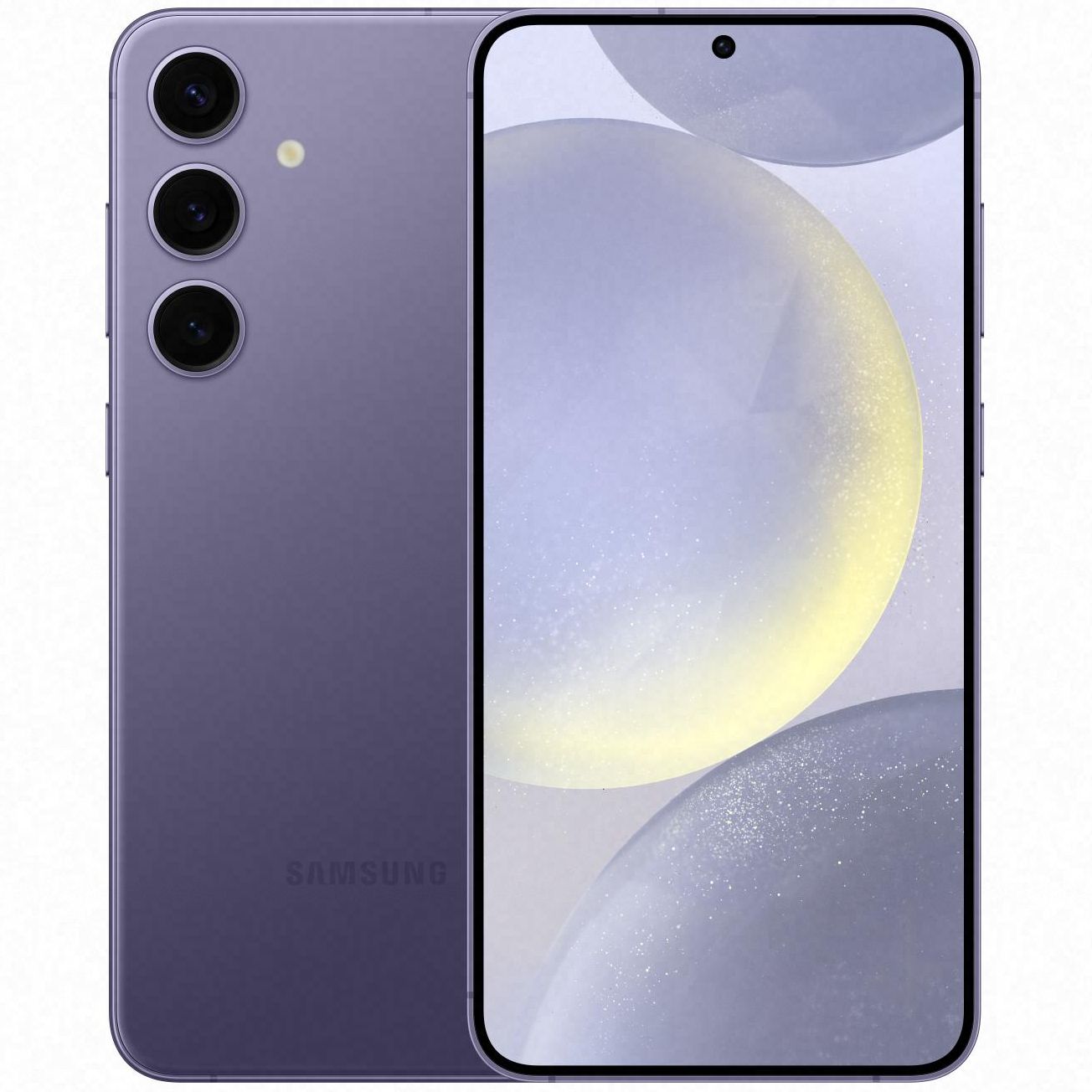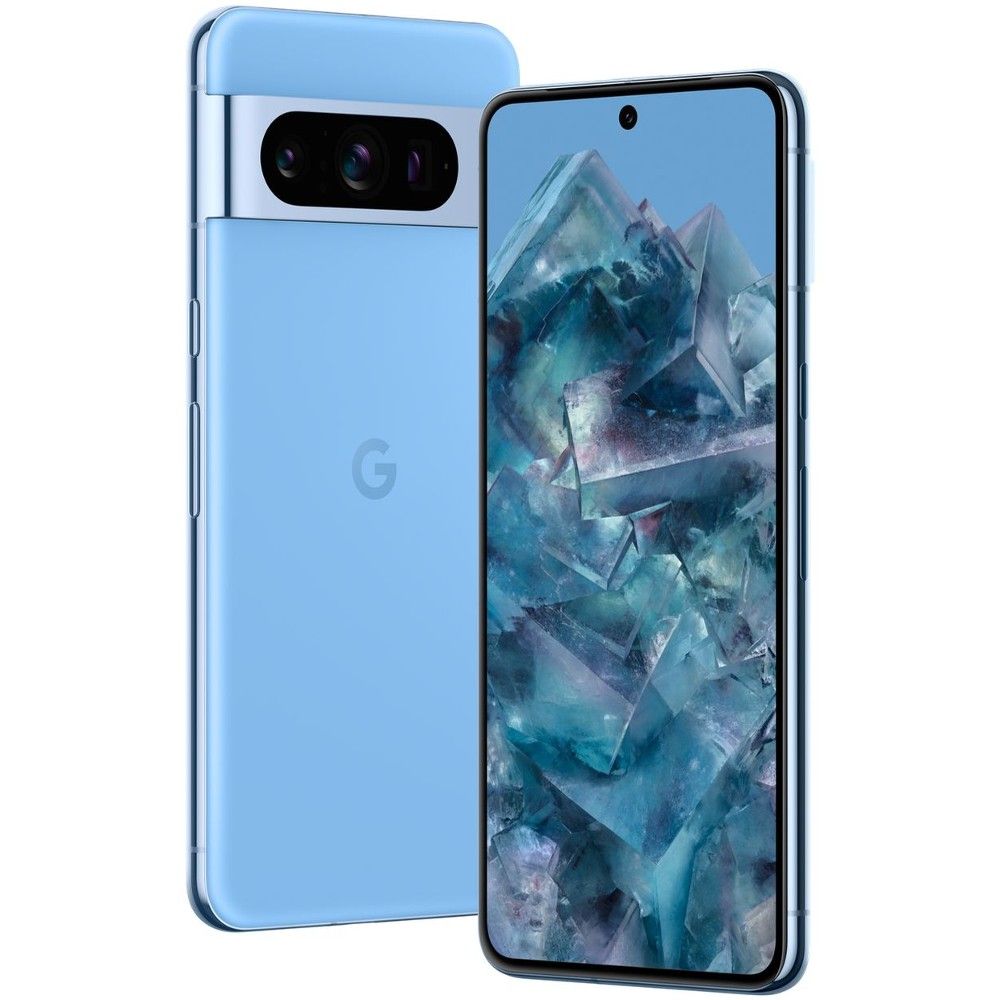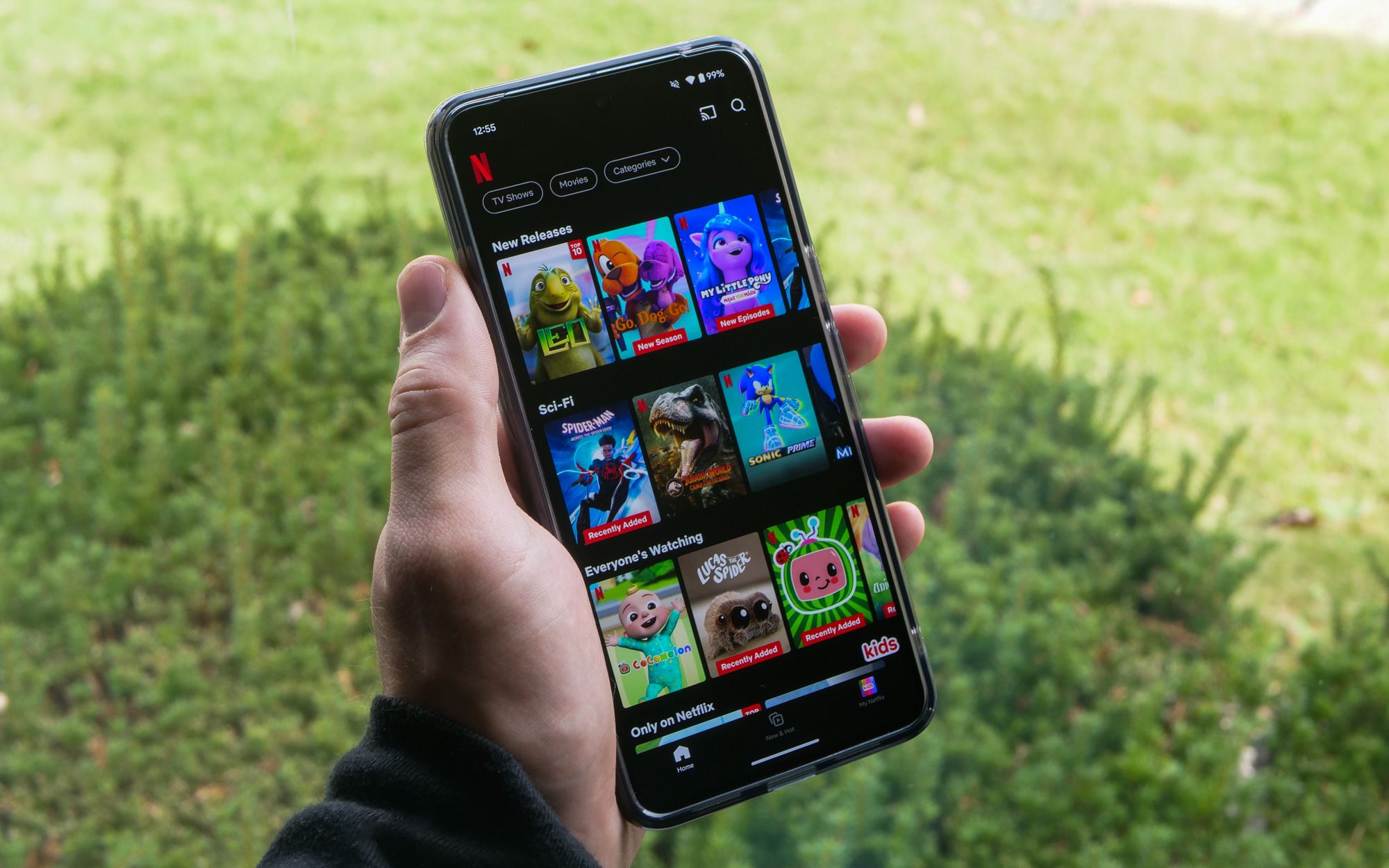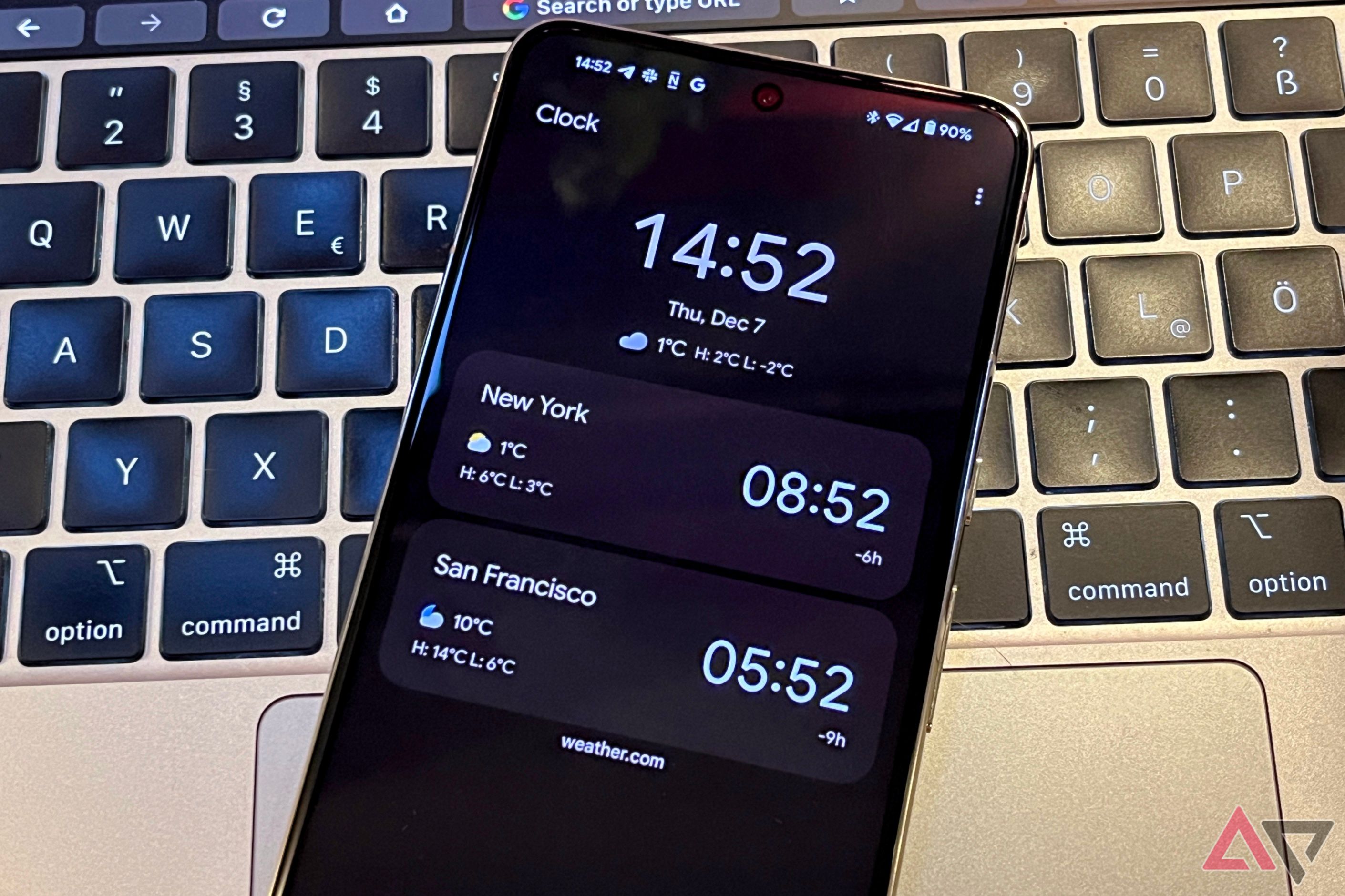-
Samsung Galaxy S24+
Elegant and powerfulWhile it looks and feels a lot like the previous model, the Galaxy S24+ sees some key hardware and software improvements. While the component upgrades aren't exactly mind-blowing, the inclusion and development of Samsung's new Galaxy AI feature set are certain to impress.
Pros- Brand new machine learning tools
- Upgraded SoC and display
- Improved camera low-light performance
Cons- Looks nearly identical to the last one
- AI effectiveness remains to be seen
-
Google Pixel 8 Pro
Near-perfect camerasBuilt around Google's in-house Tensor G3 chipset, the Pixel 8 Pro leverages fantastic camera hardware, advanced image processing, and novel AI features to deliver one of the most useful and fun phones. We can even safely say that it now lasts an entire day of moderate usage without dying.
Pros- Unmatched cameras
- Impressive display brightness and colors
- Good battery life
Cons- A bit bigger and heavier than the S24+
- Less-than-perfect performance
Samsung's big reveal of the Galaxy S24 family may not have included any Earth-shattering hardware upgrades, but the company's increased focus on machine-learning (also known somewhat erroneously as AI) features both turned heads and made it clear that Google's main competitor still has a few tricks up its sleeve. The intermediate version of Samsung's flagship lineup, the S24+, will undoubtedly make its way into the discussion of this year's best phones. So how does it fare against Google's top-of-the-line Pixel 8 Pro?
Price, availability, and specs
Samsung opted to stick with the nice, round number of $1,000 for the 256GB S24+, which will hit store shelves in major markets on January 31. An extra $120 upgrades to 512GB of storage, but you'll get that upgrade for free, in addition to $125 Samsung store credit, during the pre-order period that ends January 30.
Google increased the 128GB Pixel 8 Pro's MSRP over the 7 Pro's by $100, for a starting total of $999. Matching the base model S24+'s capacity of 256GB will set you back $1,060, with 512GB coming in at an additional $120. Both the Galaxy and Pixel are also available through the major retailer of your choice, along with Google Fi.
-
Samsung Galaxy S24+ Google Pixel 8 Pro SoC Qualcomm Snapdragon 8 Gen 3 for Galaxy Google Tensor G3 RAM 12GB 12GB Storage 256GB or 512GB 128GB, 256GB, 512GB, 1TB Battery 4,900mAh 5,050mAh Ports USB-C USB-C 3.2 OTG Operating System Android 14 and One UI 6.1 Android 14 Front camera 12MP, f/2.2 10.5MP sel�fie camera Rear camera 50MP, f/1.8 OIS main; 12MP, f/2.2 ultrawide; 10MP, f/2.4 telephoto (3× zoom) 50MP main; 48MP ultrawide; 48MP telephoto Connectivity NFC, UWB UWB, NFC Dimensions 158.5 × 76.2 × 7.6mm 162.6 × 76.5 × 8.8mm Colors Onyx Black, Marble Gray, Cobalt Violet, Amber Yellow, Jade Green, Sapphire Blue, and Sandstone Orange Obsidian, Porcelain, Bay Display type AMOLED, 1-120Hz LTPO OLED, 1-120Hz Weight 197g 213g Charge speed 45W wired, 15W wireless 30W wired, 18W wireless IP Rating IP68 IP68 Price $1,000 From $999 Stylus No No Display dimensions 6.7" 6.7" Display resolution 3120 × 1440 1344 × 2992 Charge options USB-C wired, Qi wireless Wired, Wireless SIM support Nano-SIM and eSIM Dual SIM (Nano SIM and eSIM) Cellular connectivity 4G LTE, 5G (sub-6 and mmWave) 5G (Sub-6 & mmWave), LTE Wi-Fi connectivity Wi-Fi 7, Wi-Fi Direct Wi-Fi 7 (Except certain markets), Wi-Fi Direct Bluetooth Bluetooth 5.3 Bluetooth 5.3
Design
Simple, streamlined, and classy
Without putting them side by side, the S24+ looks almost identical to the S23+, and the same can be said for the Pixel 8 Pro and its predecessor. Both manufacturers have clearly settled on a style and leaned into it. The S24+ looks and feels more like an iPhone than ever, and while that may not be some kind of huge accomplishment, there's nothing wrong with it.
Samsung did, at last, ditch the curved glass and rounded edges that introduced slippage and occasional touchscreen inaccuracies, which is just a touch poignant, considering how much it touted that innovation when it was pioneered. At any rate, we think it's a good thing, as it only increases the phone's premium feel and even allows for a larger display. And, in another triumph, the bezel now maintains its width all around, eliminating one of the most annoying visual imperfections still found on some high-end phones.
Similarly, the Pixel 8 Pro makes no major departures from the Pixel Pro design language but also flattened the front edges and brings a uniform bezel width, with no annoying chin to be found. The characteristic camera visor now packs all three lenses into one large cutout, with a matte back panel giving the phone a more professional look and contrasting well with the polished aluminum visor.
All told, neither phone breaks new ground in terms of design, but both instead fix even the most minor quibbles we had with their preceding versions. Flat edges and uniform bezels all around make them a pleasure to look at and use. The Pixel is 4 millimeters taller and 1.1 millimeters thicker, as well as 17 grams heavier. It's not so much bigger and heavier that it'll be a deterrent, but it is noticeable in a side-by-side comparison.
Display
Two big, bright specimens
Samsung cut the resolution of its midsize Galaxy S Series for a couple of years, but we're happy to report that it's returned to its former QHD+ ways, with a 513ppi pixel density that rivals the best on the market. It also sports increased brightness, pumping out up to 2,600 nits at its peak.
Those two noticeable improvements come alongside a 0.1-inch increase in display size, but not at the cost of increased dimensions. Instead, Samsung's retreat to flat screens gives its flagships a little more screen usability. In fact, only its continued use of Gorilla Glass Victus 2 and 6.7-inch measurement put it below the S24 Ultra's.
Samsung had its sights set on attacking Google's newfound display supremacy, as the Pixel 8 Pro's panel boasts nearly identical numbers. It gets up to 200 nits brighter and has only slightly fewer pixels than the S24+, though while sized the same, is a touch taller with a 20:9 aspect ratio.
Both devices leverage LTPO OLED technology for ultra-smooth refresh rates ranging from 1 to 120Hz, and both support HDR10+ playback. Unfortunately, neither offers Dolby Vision-encoded HDR content support, which home theater enthusiasts consider the more desirable format. Regardless, these are two of the best smartphone displays ever, and you'd be hard-pressed to find noticeable differences in day-to-day use.
Software
Pixel UI vs. OneUI
The Google Pixel UI and Samsung OneUI comparison remains a discussion of the two most refined Android skins on the market. Not quite aligned with the operating system's generally open-source and manufacturer-customizable nature, the Pixel experience is a little more locked down than you might expect. It's never restrictive to the point of frustration, but the launcher doesn't give you quite the same degree of freedom that Samsung does.
Samsung's OneUI continues to lead the industry in terms of hype and praise, providing a straightforward and intuitive experience right out of the box. And allows for redesign in ways that Pixel UI doesn't. The S24 family hits shelves with OneUI baked in, offering additional lock screen customization and the ability to serve as a wireless webcam, although the latter only works with compatible Samsung devices. We're actively digging into the new additions to Samsung's latest UI, but OneUI 6 is fantastic, and these new wrinkles are just the icing on top.
Samsung jumps on the AI bandwagon
The Pixel 8 Pro rightfully receives rave reviews for the novel experience its machine-learning capabilities provide. Samsung took that personally and launched its own AI feature set with the Galaxy S24 range. A new SoC enables on-device computation of some of those powerful functions, while others rely on Samsung's cloud hardware for number crunching, meaning you'll need an internet connection and a Samsung account to use them.
We're still in the nitty-gritty of working through these features, but if Samsung's excellent voice recorder is any indication, they should put up a strong fight against the Pixel's now well-established feature lineup (although some are based on Google's Gemini AI model). At the moment, Galaxy AI functions come free of charge to owners of S24 series phones, and some new Galaxy features will make their way to S23, plus Z Flip and Fold devices. Interestingly, Samsung will likely begin charging fees for these fancy features in 2026. No word yet as to the pricing model, but reports indicate that it could be in the form of a subscription.
Meanwhile, Google's machine learning has seen some refinement as well as entirely new feature drops in the last year. The Google Bard LLM and its fusing with the search bar bring an understanding of human speech to this pocketable device. With that said, the Pixel 8 Pro's latest AI tools aren't terribly impressive at the moment. But, given the rapid nature of machine learning advancement overall, and Google's dedication to the space, the Gboard Smart Replies and Google Recorder summaries could get a quality boost in the coming months. We certainly hope so, at least, because most of us using the Pixel 8 Pro at Android Police found them less than satisfactory.
Altogether, they're both more-than-competent Android implementations, capable of seamless day-to-day use and remarkable high-end features. They feel pretty different, but neither has a big learning curve. Arguably, more people prefer Samsung's, but Google does a great job as well, and has listened closely to customer feedback to ensure a great experience.
Finally, long-term software investment
In an extremely welcome change, Samsung now matches Google's promise of seven full Android updates for its flagship phones. That's a big win for consumers and a loss for e-waste. Here's hoping more manufacturers follow suit.
Performance
An unsurprising Samsung win
The last couple of Pixel releases got high praise for the software capabilities unlocked by the company's in-house Tensor SoC. It isn't exactly the fastest in the West, but it performs well and doesn't see any major slowdowns or hiccups regularly. It mostly sheds its predecessors' tendency to run hot and eat up battery at alarming rates.
Still, it couldn't quite match the performance of the previous generation Galaxy chipset, and it isn't as fast as the Snapdragon 8 Gen 3 in the new one. You'll get smooth animations, immediate responses, and fluid multitasking with the S24+. And where the Pixel and its Tensor core got all the love for AI capability in the past, Samsung's knocking on that door now, too.
Samsung's victory technically even extends beyond the chipset. Its use of a UFS 4.0 storage controller theoretically enables faster performance with lower power consumption, but we probably won't see a real-world difference. And, in a minor win for Google, the Pixel 8 Pro maxes out at 1TB capacity, while the S24+ comes only with up to 512GB.
While some of the arguments between these two flagships come down to taste, performance isn't one of them. And that means Samsung's faster device should do a notably better job as it trudges on through its 7-year Android update lifespan. Only time will tell on that front.
The Exynos-equipped EU S24+
In a somewhat surprising turn of events, it looks like the Exynos SoC used in European Galaxy S Series devices might not stink, after all. They're just benchmarks, and therefore, not indicative of real-world usage, but Youtuber NL Tech and the experts at NotebookCheck offer some reassuring news for EU Galaxy fans. Based on the raw numbers, the Exynos 2400 inside the EU S24+ might actually come somewhere close to the Qualcomm Snapdragon versions from the rest of the world in terms of battery drain and performance. You can't call it a comeback (because Exynos was never really there in the first place), but it's a great sign that Samsung's in-house chips seem to be making up ground.
Battery life
Samsung is victorious, Google is getting better
The Pixel 7 Pro's battery life was downright poor for a top-of-the-line device, and it's not easy to forgive Google for failing to address this. Thankfully, the Pixel 8 Pro's passable battery life got us to put our pitchforks down, adding 25% to its battery life in intensive testing. As esteemed Android Police professional Will Sattelberg termed it, the Pixel 8 Pro's battery life is, "pretty damn good." In real-world usage, we're able to get through an entire day without needing a top-up. That's a massive improvement from the 7 Pro, and we're here for it.
We're busy putting together our own hands-on testing of the S24+, but the S23+ was already one of the best phones for battery life. The S24+'s 200mAh-larger battery and enhanced SoC mean it will almost certainly improve on that mark.
Questionable charging rates — or are they?
People make a decent amount of noise regarding Samsung's refusal to exceed 45W, and especially Google's decision to stick with a 30W peak rate when some manufacturers' flagships refuel at rates of 60W or more. This is, in all reality, a bit overblown.
The S23+ went from 0% to 100% in just under 1.5 hours, so the S24+ will take a little longer than that. Of course, keep in mind that you'll need a quality PPS charger to get the best results. Interestingly, your phone's battery indicator displaying 100% doesn't necessarily mean it's fully charged, so make sure to give it an extra 30 minutes or so if you're getting consistently below-average battery performance.
The Pixel 8 Pro managed to jump from empty to full in just over that same 1.5-hour mark, despite its lower peak charging rate and slightly larger battery. Neither of these competes with charging speed demons from the likes of OnePlus or Xiaomi, but it's not a huge drawback, considering how most people use their phones. A 30-minute top-up with either of these will leave you at around 50% measured battery charge or more, depending on the charge level when you start. That's just fine for most people, even if the Pixel 8 Pro doesn't use its power quite as efficiently.
Camera
High-end camera quality convergence
In a typical camera comparison of a recent Pixel phone to any other flagship, we'd spend this section extolling the interesting and convenient ways that Google's AI toolkit lets you touch up images (or just does it for you, automatically). The Pixel 8 Pro remains the best at this for now, but a new challenger has arisen. Quite frankly, the Galaxy S24+ and its relatives could eventually compete with the Pixel lineup for best phone cameras since much of their machine-learning image editing will utilize Google's own AI model.
The Pixel's imaging experience is just better overall, though. Samsung's image processing has come a long way, and we're often even satisfied with its bold (if slightly unrealistic) saturation levels. But nothing makes for a simple, satisfying, one-shot picture-taking process like a Google phone. We had no major complaints with the S23+, and early tests show even better quality and faster performance for the S24+, so it's not like you're making a major camera sacrifice with the Samsung.
Samsung's actual camera hardware has generally always been fine, and the S24+'s main, 50MP lens boasts a significantly wider pixel width than the S23+'s, which improves its low-light performance. That, plus the increased SoC performance, will bring the S24+ even closer to the Pixel 8 Pro's ultra-fast, user-friendly camera experience.
But it can't quite compete with the Pixel's ultrawide and telephoto lenses. A 48MP ultrawide lens with a 126-degree FOV is practically unheard of, as is a 48MP telephoto lens with 5x optical zoom. There's no question that if you're planning to capture vast landscapes or faraway objects, the Pixel is the right choice. It'll take improved hardware, refined image processing, and the continued promise of AI tools for Samsung to catch up.
Which one's right for you?
While we're big fans and frequent users of Pixel phones, initial testing of the S24+ and its improvements over the S23+ make it pretty clear this will be a fantastic phone in the long term. Google's AI proved, for a while, its main advantage over other brands' flagships, and Samsung's Galaxy AI aims to dethrone it (research into its effectiveness is forthcoming, of course). And the Galaxy's performance and battery life make it clear which one's better in more traditional areas of comparison. As great as the Pixel 8 Pro is, we're giving the S24+ the trophy this time.

Samsung Galaxy S24+
Now featuring AI tricks and smarts
Dipping its feet into the deep end of the AI pool, Samsung's Galaxy S24+ not only checks all the boxes for a high-end smartphone but is also now poised to combat Google's formerly unquestioned superiority. With the best fit and finish and fastest processor of any Galaxy yet, the S24+ is a borderline must-buy for anybody looking to upgrade to a flagship right now.
But don't count Google out. Its AI tools continue to advance and could maintain a running advantage, considering Samsung's only now getting into the game. Plus, the Pixel 8 Pro's stellar camera is a known quantity and one of our favorite things about it. Now that the battery life is just fine, it's easier than ever to talk yourself into Google's most high-end phone yet.

Google Pixel 8 Pro
Don't count it out just yet
If you want perfect pictures and don't want to mess with settings to get them, the Pixel 8 Pro is for you. It remedied the most glaring flaws of the 7 Pro while also delivering a more refined chassis and improving performance. It's the phone of choice at AP, even if Samsung's getting closer and closer.
Samsung Galaxy S24+ vs. Google Pixel 8 Pro: Machine learning showdown - Android Police
Read More











No comments:
Post a Comment